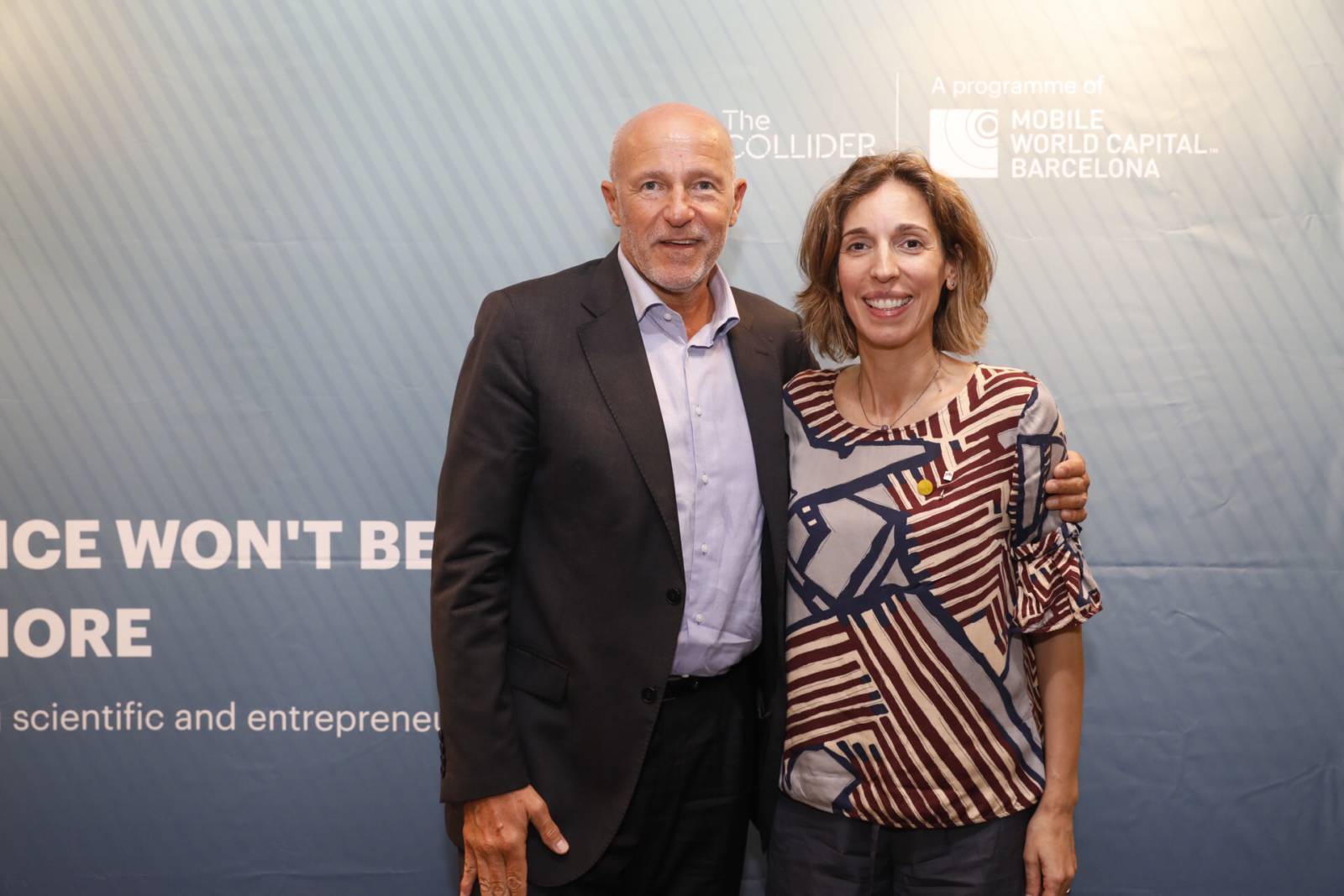- The Collider, MWCapital’s tech transfer programme, is closing the 2018-2019 edition with the creation of three disruptive companies based on computing, artificial intelligence and Big Data
- Mobile World Capital Barcelona and the Ministry of Business and Knowledge of the Regional Government of Catalonia have reached an agreement to boost technology transfer and The Collider’s impact throughout Catalonia
- For the 2019-2020 edition, The Collider is to grow and 15 research groups and 30 entrepreneurs will be selected to create technological startups

8 July, 2019
Barcelona, 8 July 2019.- Mobile World Capital Barcelona is closing the second edition of The Collider, its technology transfer programme, with the creation of three startups that are highly innovative and have great growth capacity. The three companies (Allread, SmartTower and ThePredictiveCompany) are based on technologies developed at the Polytechnic University of Catalonia (UPC), the Autonomous University of Barcelona (UAB) and the Computer Vision Center, and already have 10 pilots either in progress or planned with companies of the stature of Suez, COMSA and Port de Barcelona.
The Collider brings scientific knowledge together with entrepreneurial talent to create highly innovative technological startups in sectors such as digital health, industry 4.0 and mobility. In the last edition, 150 research teams and 1,500 entrepreneurs from all over the world applied to take part in the programme. However, only 10 research groups with highly developed technologies and 20 entrepreneurs with long track records were selected. With these, The Collider created 10 work teams of which 3 have become companies.
Startups created in The Collider 18-19
Allread: It has created a computer vision technology that teaches the machine to read. It enables any image (photograph or video) to be used so that the machine can extract alphabetic or numeric text (any language) and convert it into Big Data. The difference with previous technologies is that it selects significant text with extremely high reliability (98%).
Team: The technology has been developed by a research team from the UAB and from the Computer Vision Center. The Collider placed them in contact with two entrepreneurs (one from Galicia and the other from Holland) with international experience in venture capital, operations, commercial management, etc.
Applications:
- The gas meter: a reader can now detect all the meter’s letters and numbers, but is not capable of reading only the necessary text referring to consumption. With Allread indeed.
- Logistics: using a camera the software created by Allread can detect containers in movement and gather all data.
SmartTower: It uses artificial intelligence and algorithms to remotely and autonomously monitor electricity transmission towers. The tower is fitted with a device featuring sensors that provide all kinds of information: whether the tower has inclined, whether the cables are loose, or whether a bar has fallen, etc. In phase two, the device, which has an infrared camera, detects the temperature of the cables, wind velocity and issues fire warnings. Data crossing in real-time allows for predictive rather than reactive maintenance.
Team: The technology has been developed by the UPC and is based on different doctoral theses about structural diagnosis. COMSA, which has a 10% holding in the company, has also been involved in its development. The Collider placed the research team in contact with two entrepreneurs who have experience in the energy sector.
Applications:
- Real-time detection of damage to towers. This technology would have prevented the 5-day power cut that occurred in Girona in 2010. Snow brought down cables and towers and it took days to locate the fallen tower that was paralysing the line. It cost the company €52 million in compensation payments.
- Detection of fires, sudden increases in temperature and alarms. It would have prevented disasters like the one that occurred in California in 2018 when a thunderbolt started a fire that was not detected until it was already huge.
ThePredictiveCompany: Artificial Intelligence-based energy efficiency software. Its innovation lies in the incorporation of multiple variables and use of an algorithm for autonomous management of the building. The software crosses data such as historic information on energy expenditure; movements of people inside the building; weather forecasting, etc. It uses AI to predict future energy needs. Future heating or air-conditioning requirements are autonomously forecasted to yield energy savings of up to 40%.
Team: the software has been developed and tried and tested over 10 years by two experts in Artificial Intelligence and energy efficiency from the UPC. Pilot trials on application are being performed at the Polytechnic University of Madrid and also in other buildings. The Collider placed the research team in contact with two entrepreneurs from Italy and Poland who are established in Catalonia and have experience in major companies such as Microsoft and L’Oreal.
Applications:
- Energy-saving of up to 40% for buildings with a medium or high expenditure (offices, universities, schools, etc.).
- Reduction of environmental impact and CO2 emissions.
2019-2020 edition: The Collider is growing
For its third edition (2019-2020), The Collider is to grow as a result of public and private collaboration. Mobile World Capital Barcelona has reached an agreement with the Ministry of Business and Knowledge of the Regional Government of Catalonia to boost technology transfer and The Collider’s impact throughout the territory and thus to encourage the country’s competitiveness. Through the agreement, MWCapital will provide advanced training to Catalan universities’ Innovation and Transfer Units with a view to boosting the scientific ecosystem’s entrepreneurial skills and encouraging the creation of spinoffs.
The agreement with the Regional Government of Catalonia, which will contribute €240,000, will also enable The Collider to increase the number of work groups from 10 to 15 per year. The programme will seek to ensure that R+D groups from all over Catalonia are represented in this edition.
The third edition of The Collider will also strengthen its ties with major companies and corporations such as Novartis, which will take part in the selection of projects, technologies and entrepreneurs and collaborate in validating technologies. Its involvement in the programme will strengthen The Collider’s commitment to the digital health sector.
The third edition of The Collider has begun with a call to research teams with developed technologies and has set a new record for applicant projects: 163. Most (28%) are associated with digital health and industry 4.0 (24%). Today marks the start of the period for receiving entrepreneurial candidatures for positions as CEOs and COOs of the future companies created. The coming months will see the selection of 15 research groups and 30 entrepreneurs that will start working on their future company in January.
Stay up to date about everything
Subscribe to stay up to date with the latest content from Mobile World Capital Barcelona.
